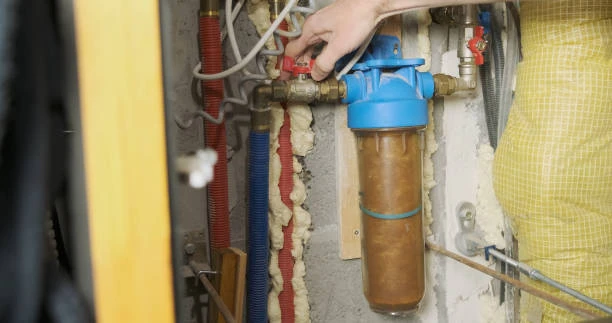Introduction
The global PPR (Polypropylene Random Copolymer) pipes and fittings market is poised for significant growth in 2024. As industries and consumers alike prioritize durability, efficiency, and sustainability, PPR Pipe are increasingly becoming the material of choice in various applications. This report explores the current state of the market, trends influencing growth, and the outlook for the future.
Understanding PPR Pipe and Fittings
What Are PPR Pipe?
PPR pipes are manufactured from polypropylene, a thermoplastic polymer. They are known for their resistance to corrosion, high temperatures, and chemicals, making them ideal for plumbing, heating, and irrigation applications.
Key Features of PPR Pipe
- Durability: PPR pipes can last over 50 years with minimal maintenance.
- Temperature Resistance: They can withstand temperatures up to 95°C (203°F).
- Chemical Resistance: PPR pipes are inert to many chemicals, which makes them suitable for various industrial applications.
- Eco-Friendly: They are recyclable and contribute to sustainable practices.
Market Overview
Current Market Landscape
The PPR pipes and fittings market has witnessed steady growth over recent years. With increasing urbanization and infrastructure development, the demand for reliable plumbing solutions has surged.
Regional Analysis
- North America
- The North American market is driven by the growing demand for eco-friendly building materials and stringent regulations regarding water quality.
- Europe
- Europe is a significant market due to its established infrastructure and high demand for efficient plumbing solutions.
- Asia-Pacific
- Rapid urbanization and population growth in countries like India and China are driving the PPR pipes market in this region.
- Latin America and Middle East & Africa
- Emerging economies are investing in infrastructure, providing opportunities for PPR pipe manufacturers.
PPR Pipe Market Trends
Increasing Demand for Eco-Friendly Solutions
As awareness of environmental issues rises, the demand for sustainable materials like PPR is growing. PPR pipes are recyclable and have a lower carbon footprint compared to traditional materials.
Technological Advancements
Innovations in manufacturing processes and pipe designs are enhancing the performance of PPR pipes. Advanced production techniques are leading to the development of stronger, more efficient piping systems.
Growing Construction Industry
The global construction industry is booming, fueled by urbanization and infrastructure projects. PPR pipes are increasingly being specified in construction due to their reliability and performance.
Rise in Water Management Solutions
With the growing concerns about water scarcity, efficient water management systems are becoming crucial. PPR pipes are ideal for these systems due to their durability and chemical resistance.
Competitive Landscape PPR Pipe
Key Players in the Market
- Fivestar Plastics
- Known for producing high-quality PPR pipes and fittings for various applications.
- Kuzeyboru
- A major player in the PPR market, Kuzeyboru specializes in providing innovative piping solutions.
- Bänninger Kunststoff-Produkte GmbH
- Focused on developing eco-friendly and durable piping systems.
- Wavin
- Offers a wide range of PPR solutions, catering to both residential and commercial markets.

Market Share Analysis
The competitive landscape is characterized by both established players and emerging companies. Larger corporations dominate the market, but there is ample room for innovation from smaller firms.
Challenges in the PPR Pipe Market
Price Volatility of Raw Materials
The prices of polypropylene and other raw materials can fluctuate, affecting production costs and profit margins for manufacturers.
Competition from Alternative Materials
While PPR pipes have numerous advantages, they face competition from materials such as PVC and metal pipes, which can also be cost-effective.
Regulatory Challenges
Navigating regulations concerning materials and plumbing standards can be complex for manufacturers, especially in different regions.
Future Outlook PPR Pipe
Market Growth Projections
The global PPR pipes and fittings market is expected to grow at a CAGR of approximately 7% over the next five years. The increasing demand for sustainable and efficient plumbing solutions will drive this growth.
Innovations on the Horizon
Technological advancements will continue to play a crucial role in the market. Future innovations may include smart piping systems that integrate IoT technology for monitoring and maintenance.
Conclusion PPR Pipe
The global PPR Pipes and fittings market is set for significant growth in 2024 and beyond. As industries and consumers seek durable, efficient, and sustainable solutions, PPR pipes are well-positione to meet these demands. Companies that prioritize innovation and sustainability will likely thrive in this evolving market.
Furthermore, as infrastructure projects expand and water management becomes increasingly critical, the demand for high-quality PPR pipes will continue to rise. Investment in research and development will lead to enhanced products that offer better performance and environmental benefits. Overall, the PPR market presents a promising landscape for growth and innovation in the coming years.
FAQs
- What are PPR pipes primarily used for?
- PPR pipes are use in plumbing, heating systems, irrigation, and various industrial applications due to their durability and chemical resistance.
- How long do PPR pipes last?
- With proper installation and maintenance, PPR pipes can last over 50 years.
- Are PPR pipes recyclable?
- Yes, PPR pipes are recyclable, making them an eco-friendly choice.
- What are the temperature limits for PPR pipes?
- PPR pipes can withstand temperatures up to 95°C (203°F).
- What factors are driving the growth of the PPR pipes market?
- Key factors include increasing urbanization, demand for eco-friendly materials, and advancements in technology.

















